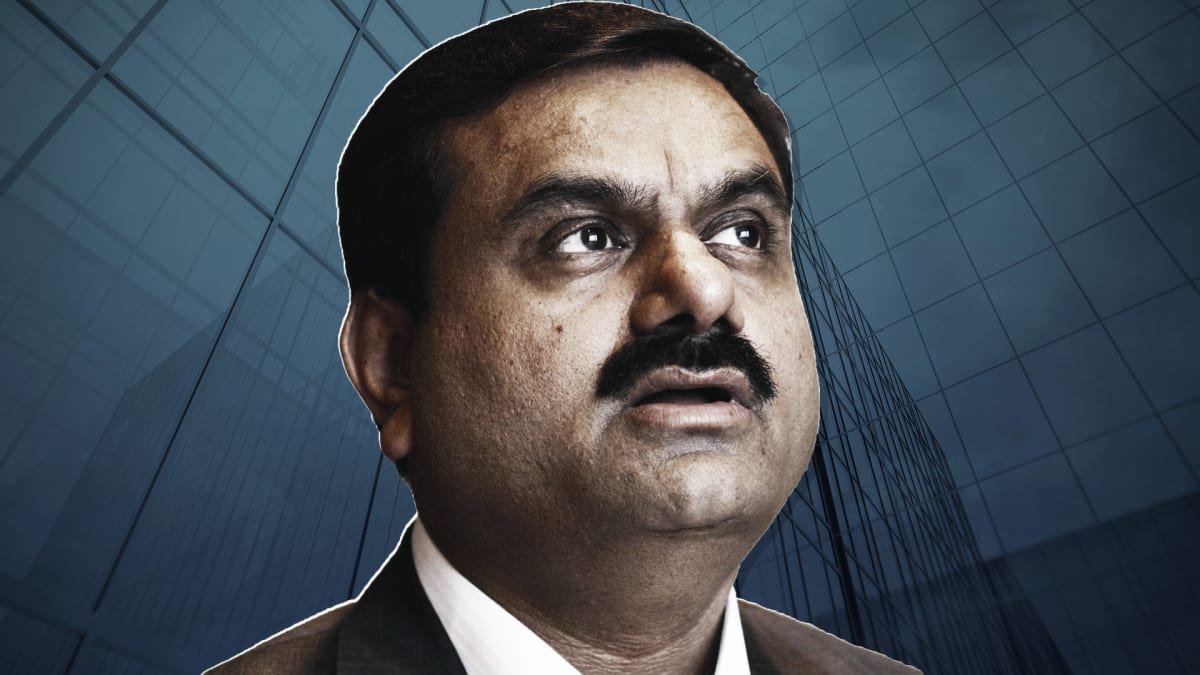
Billionaire Gautam Adani can catch his breath.
For the past week his conglomerate has been rocked by allegations of fraud that threaten its expansion.
These accusations are made by the New York investment firm Hindenburg Research, which shorted stocks of the Adani conglomerate through U.S.-traded bonds and non-Indian-traded derivative instruments. This means that Hindenburg Research, a well-known short-seller, is betting on a short-term drop in the prices of these equities.
The short-seller claims that the conglomerate has used shell companies in tax havens to boost its revenue and manipulate the stock prices of its various entities. The report describes a galaxy of shell entities based in the Caribbean, Mauritius and the United Arab Emirates controlled by the Adani family.
"We have uncovered evidence of brazen accounting fraud, stock manipulation and money laundering at Adani, taking place over the course of decades," Hindenburg wrote in a report published on Jan. 24.
"Adani has pulled off this gargantuan feat with the help of enablers in government and a cottage industry of international companies that facilitate these activities."
Adani Group has rejected the allegations as baseless and has threatened to pursue all possible legal remedies in Indian courts. The conglomerate also went so far as to say that India was the target of Hindenburg.
"This is not merely an unwarranted attack on any specific company but a calculated attack on India, the independence, integrity and quality of Indian institutions, and the growth story and ambition of India," Adani Group said, in a 413-page report, on Jan. 29.
Adani Group Raises $2.5B in Offering...
Another problem for the group was that this standoff with Hindenburg was taking place when it was trying to attract the general public and foreign investors to a $2.5 billion follow-on public offering from Adani Enterprises, which is the flagship of the Adani empire.
This share sale was fully subscribed as of Jan. 31, the last day of the sale. Last week only about 30% of the shares had been subscribed, which raised doubts that the transaction was going to be successful. But final data show that the share sale was fully subscribed.
The last-minute rush of share purchases came from foreign institutional and corporate investors. One of the notable investors is Abu Dhabi Conglomerate International Holding, which has indicated that it will invest $400 million, or 16% of the offering. IHC last year invested $2 billion in the Adani conglomerate.
Participation in the offering by retail investors and company employees was relatively low, accounting for only about 10% of the shares purchased.
Nevertheless, the full subscription of the share sale at a crucial moment is a victory for Adani. It marks a vote of confidence by foreign investors and will enable him to reduce the debt his empire holds.
...But Doubts and Questions Linger
But it will not remove the doubts and questions Hindenburg raised regarding the governance of one of Asia's largest conglomerates.
The attack by the short-seller also risks delaying Adani Group's international-expansion plans because it will prompt more due diligence from foreign partners.
The attack also damaged the reputation and image of Gautam Adani, who saw this year as an opportunity to raise his profile on the international scene.
Some damage is already apparent. The shares of the entities making up the Adani group were harshly sold off during the three trading sessions after Hindenburg published its report. The conglomerate lost $69 billion in market capitalization, according to Bloomberg News.
Adani's personal fortune also suffered. The tycoon who started the year fourth in the Bloomberg Billionaires Index, has now been ejected from the top 10. He is currently 11th, with an estimated fortune of $84.4 billion as of Jan. 30, down from $119 billion as of Jan. 24.
His net wealth has thus decreased by $34.6 billion in six days.
Adani Group is one of the most valuable companies in India. The firm holds mines, ports and power plants. It owns a dozen commercial ports and is present in coal, electricity and renewable energy. It also has diversified into airports, data centers and defense.
The company also recently entered the cement sector by buying assets of cement manufacturer Holcim in India and is also looking to set up an aluminum factory.
Adani has grown the group by acquiring companies with debt.
Last August, the CreditSights subsidiary of Fitch Ratings warned that the Adani conglomerate was "deeply overleveraged" and may "in the worst-case scenario" spiral into a debt trap.
But two weeks later the credit-rating firm said it discovered that it had made "calculation errors" in two of Adani Group's companies. It corrected its report and removed the words "deeply overleveraged."
"CreditSights' views have not changed from its original report and we still maintain that the group's leverage is elevated," CreditSights concluded.







